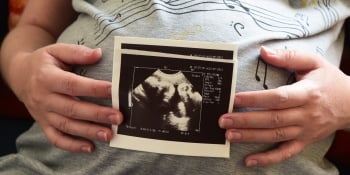Published: 24.03.2020

The European Court of Human Rights has once again ruled that Norway has violated parents' rights. The cases concern two families broken up by the child protection office - Barnevernet, on the basis of false accusations of mental problems of the parents. In the first case, the evidence for this was supposed to be "excessive" concern for the children's health. These rulings confirm the phenomenon of systemic violations of human rights in Norway.
The first case concerned the marriage of a Swede and a Romanian, who moved to Norway in 2013. They moved to the country with their three sons, who were 13 years old, 8 years old and 6 years old. Shortly after the move, Barnevernet issued an order to immediately take the three boys from their parents because of alleged "insufficient insight into their problems." According to officials, the parents' concern for the children's health was excessive. In the eldest son, the parents began to notice symptoms that might indicate the occurrence of Ehlers-Danlos syndrome, a genetic disease manifested by excessive flaccidity and tenderness of the skin and by joint instability. The parents also noticed similar symptoms in their younger sons.
After Barnevernet's intervention, the children were transferred to foster care, and the parents were granted the right to two hours of meetings per month, which were soon limited to four half-hour meetings per year. During the meetings, the parents could not communicate with the boys in their native language - Romanian. The couple appealed the decision to court. In the course of the proceedings, the expert's opinions confirmed that, contrary to Barnevernet's suggestions, the parents did not have mental problems, and their oldest son actually required special care, although it was not determined whether he suffered from EDS. Moreover, it was determined that the eldest boy did not handle well the separation from his parents and wished to return home as soon as possible.
In 2015 the Superior Court ruled that Barnevernet's decision to take the children from their parents was unfounded. However, the court also ruled that only the eldest boy could return home because the other two allegedly had already bonded with their new place of residence. At the same time, the court granted the parents the right to six six-hour meetings with the two sons per year, under the supervision of a social worker.
Due to this decision, the children's father lodged a complaint with the European Court of Human Rights in Strasbourg. The ECHR ruled that Norway had violated the father's right to respect for his family life, as guaranteed by Protocol No. 8 to the Convention for the Protection of Human Rights and Fundamental Freedoms. The court drew attention to the inconsistency in the Norwegian court's ruling, which on the one hand declared Barnevernet's decision to be entirely unfounded, and on the other hand annulled it only in the part concerning the oldest boy. In addition, the judges reminded that the state has the duty to make efforts to reunite the child with its biological parents. Meanwhile, throughout the whole separation period, the authorities did not make any efforts in this direction - the allowed meetings between the parents and their children were rare and they could not communicate with each other in their native language.
The second case concerned a Norwegian married couple, who in 2008 had their 2.5-year-old son taken away by Barnevernet, because of their alleged mental illness. In 2014 The Superior Court upheld Barnevernet's decision, indicating that after six years of separation, the child allegedly felt more connection with his foster carers than with its biological parents. The couple then lodged a complaint with the Strasbourg Court, which, as in the previous case, found that Norway had violated their right to respect for family life.
"These are further rulings which confirm that Norway has a systemic problem with violating parents' rights. The course of action is as follows - first Barnevernet takes the child away from the parents, often based on anecdotal evidence, then passes it to foster care, where it spends many months, and sometimes several years, and then, even if the court finds the decision of the office to be incorrect, it maintains it in force, citing the loss of bond between the child and its parents. The Strasbourg Court has clearly condemned this reasoning. If the state is the cause of the loss of family ties, it cannot justify keeping children in foster care on this basis. As the biological parents are the child's first carers,” said Karolina Pawłowska, Director of the International Law Centre of the Ordo Iuris Institute.
Hernehult v. Norway and Pedersen and Others v. Norway, ECHR judgments of 10 March 2020.

· Abortion advocates manipulate human rights slogans which remain relevant to Polish citizens in order to force the public into supporting abortion.

09.02.2024
- The first reading of the civic bill "Yes to family, no to gender" is underway in the Sejm.
- This bill concerns consent to the denunciation of the Istanbul Convention and the creation of a Team for the development of the principles of the International Convention on the Rights of the Family

01.02.2024
- In December 2023, the European Parliament voted in favour of the European Commission's proposal to regulate the mutual recognition of parenthood in EU Member States.
- As a result of the adoption of this draft legislation, Poland would be obliged to recognise the legal validity of a document certifying same-sex parenthood.

30.01.2024
- The Senate of the Czech Republic has rejected a draft resolution to consent to the ratification of the Istanbul Convention, which questions the existence of two genders by introducing the concept of "socio-cultural gender" into the legal order - gender.
- The Czech portal 'Seznam Zprávy' revealed that, before the final decision was made, the senators read an analysis by the Ordo Iuris Institute, which in 2020 was translated into 17 languages, including the Czech language.